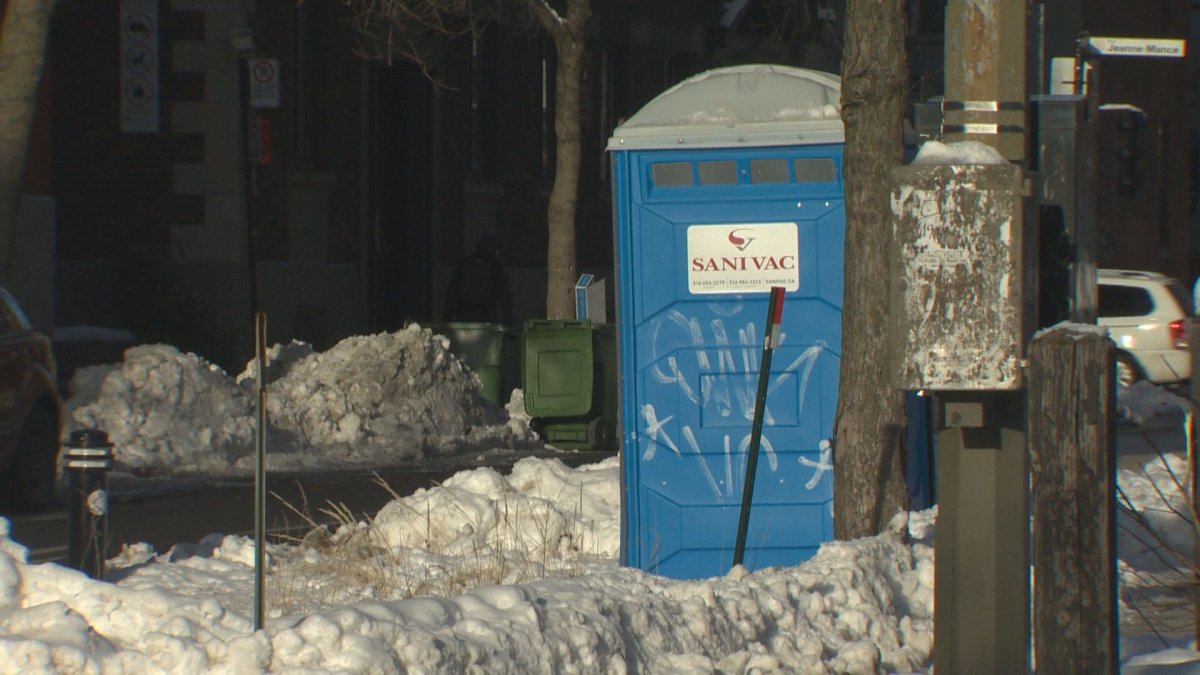The Quebec coroner’s office is investigating the death of a 51-year-old homeless man in Montreal’s Plateau-Mont-Royal neighbourhood over the weekend.

Raphael André’s body was discovered inside a portable toilet in the early morning hours of Sunday, Jan. 17, near the Open Door, a drop-in centre that provides services to the homeless and low-income earners in Montreal and one of the only wet shelters in the city.
The coroner’s office has yet to release the cause of death, but many advocates for the homeless say the Innu man may have died as the result of the cold.
“We’re not sure if it’s foul play or if he just died in the bathroom from hypothermia,” said Trish Norton, an intervention worker, with Resilience Montreal, another organization providing services to vulnerable Montrealers.
“Sometimes, you know, they’re cold, they need a warm place to sit for a little bit, and that’s all it takes. You know, you fall asleep outside, you don’t have powers, you don’t have anything.”

André was the last person to leave the shelter at 9:30 p.m. on Saturday. His body, was discovered by a friend at around 3 a.m. on Sunday.

Get weekly health news
John Tessier, a coordinator with Open Door, believes André’s death could have been avoided were the shelter allowed to remain open all night.
“He wanted to stay, but we weren’t allowed to stay open,” Tessier said. “He would have been sleeping or resting comfortably. If he would have encountered any distress we’d have called 911.”
The shelter has been forced to close at 9:30 p.m., due to public health directives issued following an outbreak of COVID-19.
Montreal public health says it issued a recommendation on Jan. 2 for Open Doors’ warming shelter to temporarily suspend services, a measure it says was approved by the organization’s board of directors.
On. Jan. 12, Montreal public health issued a second recommendation, supporting a possible reopening of the warming centre, “if Open Door meets sanitary guidelines following a major outbreak,” said Montreal public health spokesperson Eric Forest in a written statement.
“This recommendation is currently being evaluated by the Montreal health network,” Forest said.
Tessier believes forcing people out onto the street at night, where they can “mingle and risk exposure to COVID-19”, isn’t helpful — especially while the province-wide overnight curfew is in effect.
“We have 65 places that are available for people to come stay at night …They’re cordoned off that have physical barriers between them,” he said.
“It just doesn’t make sense to me that during a curfew, when everyone else is being required by law to shelter in place, we’re being required to send people out into the street. I don’t understand how that can help the public health.”
Forest said the outbreaks have led to more services and resources being allocated to the homeless to “ensure the safe isolation of people wo test positive for COVID-19.”
He also pointed to a COVID-19 vaccination campaign for the homeless which kicked off on Friday.
David Chapman, project coordinator at Resilience Montreal, agreed there were many resources available to the homeless right now, but said many are hesitant to use them.
“Often they come with a fairly long list of rules,” Chapman explained. “The truth of the matter is that the resources that are available tend to not receive a person as they are.”
“Meaning if you’ve got beer in your bag, they’re going to send you out. If you’re trying to use crack or something, they’re going to send you out. If you’re having, you know, a mental health episode and it’s taking a lot of people up, it’s making quite a commotion. You’re probably going to get sent out.”
Forest acknowledged it is a problem.
“Work is underway with community partners to find solutions more suited to this clientele who doesn’t want the services currently being offered,” he said.
— With files from Global’s Olivia O’Malley







Comments